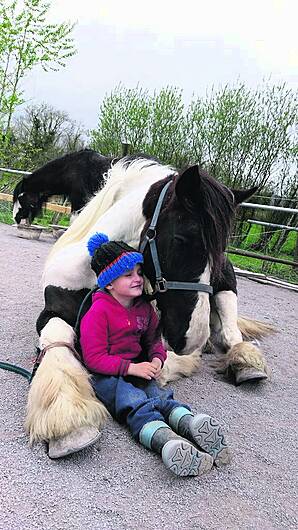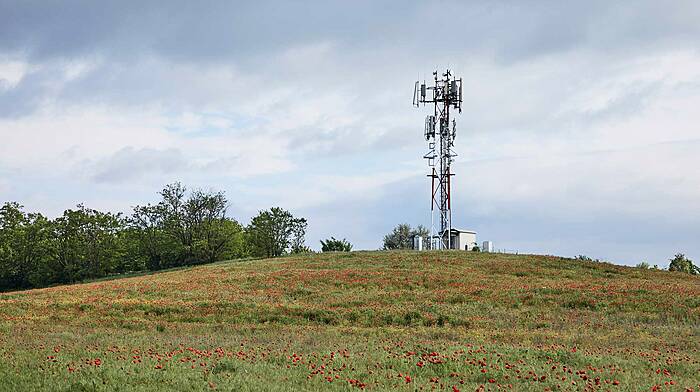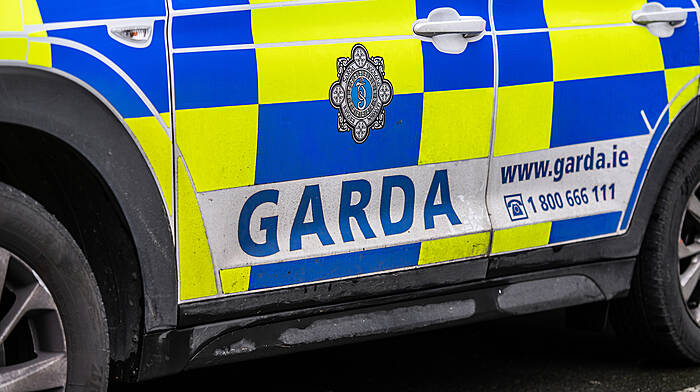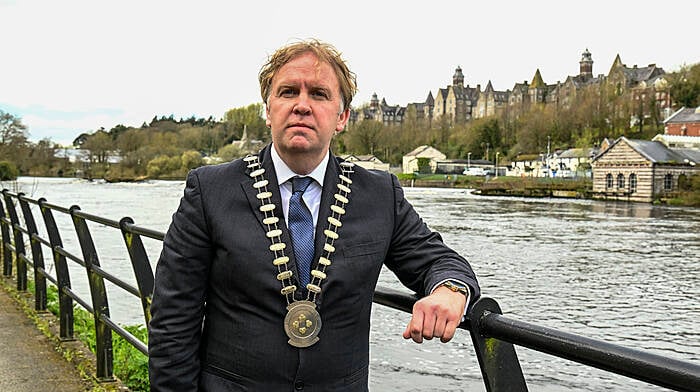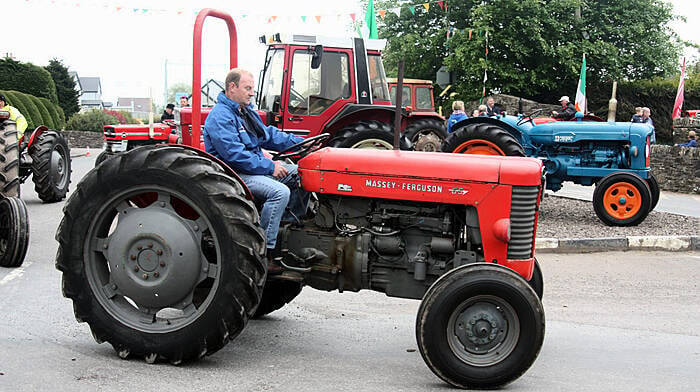Children with autism or developmental issues are finding a real connection with ‘Hairy Henry', a 14-year old draught horse.
CHILDREN with autism or developmental issues are finding a real connection with ‘Hairy Henry’, a 14-year old draught horse.
Sandra Schmid, who is a registered social worker and runs the Hairy Henry Therapeutic Riding Centre in Bantry, said that when a child’s first word is ‘up’, she knows that she and her animals have reached them.
The day The Southern Star visited the centre, Claire Lynch from Ovens was there with her five-year old son, Sam.
Since coming to the centre, Claire said Sam, who has autism and global developmental delay, ‘has become much more relaxed.’
Claire said the change in his behaviour is having an impact on her life, too, because Sam is now more independent.
Before, when he was unable to express himself as well, she said he’d have ‘a meltdown’, but now he is better at taking direction.
Claire, a busy working mother, looks on as Sam works with Sandra in the small arena. Together, they work on a set of small tasks – the same small tasks every time he goes to the centre – a technique known as sequencing.
By following simple drawings and the gentle urgings of Sandra, Sam knows he has to brush the horse, clean the horse’s hooves, and help saddle up before they can go riding.
With each passing week, Claire says she can see Sam becoming more comfortable and confident in himself as he sits on the back of the big and solidly-built Henry.
Claire said: ‘ASD and GDD defines who Sam is, so for that reason I accept it for what it is, but at the same time I didn’t think I would be in this situation when I got pregnant or when he was born.
‘Sam is not non-verbal, but the lack of conversation is a huge thing – when it is just me and him it can be quite lonely, talking to someone who doesn’t talk back.’
Sam may not be very chatty, but he is very affectionate. ‘Ridiculously so,’ according to Claire. ‘It is hugs galore. He is super tactile.’
Sam has bonded with Hairy Henry, but Sandra said there is also Winnie, Flora and Daisy to choose from. ‘It’s great to have a range of horses because they speak to people differently.
‘They might all look the same on the outside – a head, a mane, a body and four legs – but they are just like people: they have their own personalities, their own characters, and different horses appeal to people in different ways.’
Henry and Winnie are the proud parents of Flora, but Daisy came from Waterford. ‘She neighed the whole way here,’ said Sandra, who gave her a home after her previous owner outgrew her.
‘She has seen it all, so it is nothing for her to have a few more children’s hands on her. She is full of life. It would have been a shame just to have her in a field doing nothing especially as she gives so much to the little children here. She is the right height. They can reach her.’
When Sandra first came to West Cork she fell in love with the place and with her husband to be, Tim Rowe, but she knew she needed a qualification so she returned to Germany for a few years to train as a social worker.
‘I moved from the South West of Germany to the South West of Ireland,’ said Sandra, whose real love of animals and nature had led her to consider a career in biology, but the math left her stumped.
For 14 years she worked as a social worker in the area of child protection, but quit because it was so intense. After that, she said, ‘it came back to me – the whole nature thing. I realised I had been spending so many hours indoors at meetings, in rooms, and family sitting rooms, and children centres and thought “there’s more to this world”.’
She believes: ‘Talking doesn’t suit everyone. Some people find it too artificial. It’s just you and them and the words. And sometimes you need more than that.’
Today, Sandra is not only a social worker, she is also registered as a further education teacher with the Teaching Council, which means she is garda-vetted and can provide home tuition as an alternative to the classroom.
She specialises in working with children who are preparing for school and she helps them with their social skills. She can work with children on a one-to-one basis; take the child outside to learn through social outings, or, with the parent’s permission, through the activities at the
Hairy Henry centre.
‘Here, we create an environment where children, like Sam, want to communicate. Here, Sam learns that communication is something positive, and he learns how to communicate appropriately.’
A lot of these children – although she does work with adults too – have too much of the cortisone stress hormone in their system. Some are stressed by their environment, or what people want from them. Horse riding works for a multiplicity of reasons: some find the rocking motion to be soothing. Some children find a connection with a particular horse, and when that horse indicates its willingness to be led, the child becomes ‘a leader’ – all of which is, of course, non-verbal but instinctive.
Conor Lynch from Castletownbere was just three years old when he first came to Sandra’s and she described how ‘this tiny little person raised his arms for me to lift him up’.
‘That,’ she said, ‘is communication for a child who doesn’t have words.’ Conor, who is now six, has loads of words today and is the undoubted star of a short film that can be seen on the Hairy Henry website. His joy as he carries out a number of tasks, both on and off the horse, could not be more evident.
‘Horse riding is a motivator,’ said Sandra. ‘Take, for example, a child who doesn’t like walking on uneven ground. I suggest we bring the pony in from the field, so we go and get him, and the child learns “if I walk across that uneven ground I can ride the pony”. It’s a principle and an approach that can be applied in so many different ways. ‘We don’t just have horses,’ said Sandra. ‘We have sheep, donkeys, pigs, hens, dogs and rabbits – and a couple of noisy geese!
‘There is one teenager who comes and he just loves the donkeys. Horses are more forgiving: they are so generous and try their best to please, but donkeys have the softest noses and with donkeys you have to convince them you are worth it, because they are, by their very nature, cautious.’
When they started the centre in 2013, Sandra said she got in a bit of a muddle trying to come up with a name that would sound professional and encapsulate everything she was trying to do, but it all sounded too formal, too official, and it was Tim who came up with the name ‘Hairy Henry’.
Together, they created a wonderful logo, an animated drawing of a child with its arms thrown around the neck of a horse.
Sandra said: ‘That kind of says it all. There’s no miracle cure here.
‘There is just a safe space where children – and adults – can learn to bond with animals and with nature, and learn to trust themselves in the process.’

